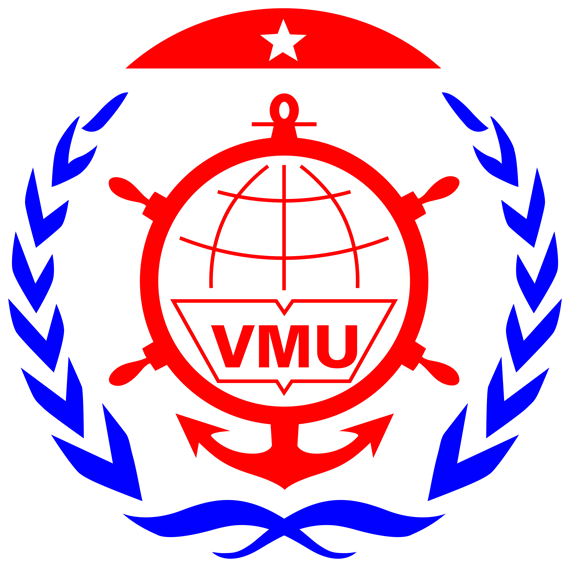1. Introduction
|
Program title: |
Bachelor of Hydraulic Engineering |
|
Graduation degree: |
Bachelor's degree |
|
Study model: |
Full-time |
|
Total credits: |
139 |
|
Used language: |
Vietnamese |
|
Training duration: |
4 years (8 semesters) |
|
Responsible Faculty: |
Faculty of Civil Engineering |
|
Website: |
|
|
Address: |
Room 903, 9st floor A6 Building, Vietnam Maritime University 484 Lach Tray - Le Chan - Hai Phong |
The Bachelor of Hydraulic Engineering program at Vietnam Maritime University, designed by the Faculty of Civil Engineering, draws upon programs from various esteemed domestic and international universities. Regularly updated to align with industry needs and adhere to the Ministry of Education & Training and Vietnam Maritime University regulations, the program equips learners with essential knowledge, skills, and attitudes. It meets the Vietnamese National Qualifications Framework and international standards, preparing graduates to excel in the 21st-century workforce. Graduates of the program earn a bachelor's degree in Hydraulic Engineering, with the ability to design, construct, supervise, and manage hydraulic engineering works. They are dynamic, creative, and adaptable, ready to compete in the Asia-Pacific region and contribute to national development and international integration. Graduates are qualified for roles such as consulting design engineer, construction supervision engineer, field engineer, laboratory technician, project management personnel, academic lecturer or researcher. Additionally, after graduation, students have the opportunity to pursue postgraduate studies and doctoral research at institutions both domestically and internationally. They can also engage in teaching and research at universities, research institutes specializing in marine structures, port structures, and affiliated research centers of universities and colleges.
The Bachelor of Hydraulic Engineering program at Vietnam Maritime University offers a comprehensive education that prepares students for successful careers in the construction sector. With a focus on both theoretical knowledge and practical skills, graduates are well-equipped to meet the challenges of the modern technological landscape.
2. Curriculum
The Bachelor of Hydraulic Engineering program is organized into 8 semesters as follows:
Throughout eight semesters, students undertake a comprehensive curriculum that combines theoretical and practical learning. In Semester I, students gain foundational knowledge and skills through Algebra, Calculus, and Physics. The subject of Introduction of civil engineering offers insights into the major and future career, while General Law covers the importance of laws in daily life. Optional courses include Environmental Studies and Protection for environmental knowledge and Soft Skills 1 to build communication and teamwork abilities.
Semester II continues to provide students with foundational knowledge through subjects such as Descriptive Geometry - Technical Drawing, Engineering Mechanics, and Chemistry Engineering. This semester also broadens students' knowledge by Hydraulics which provides basic knowledge of hydraulics. MS Office Suite for software proficiency and Basic English 1 for language enhancement are optional subjects.
Semester III provides skills for drafting construction drawings by AutoCad drawing subject. Strength of materials gives the concepts of stress, strain, elasticity, and failure theories to ensure the safety and durability of structures and mechanical components. The basic specialized knowledge is provided through Basic geodesy, Basic geology, and Construction Materials. Besides, in this semester, students begin to be provided specialized subjects, including Meteorology, Hydrology and Oceanography, and Construction law. Business Management and Basic English 2 are optional subjects to enhance the management and language skills of students.
Semester IV explores advanced subjects like River and Ocean Hydrodynamics, which studies the hydrodynamic processes in rivers, estuaries, and coastal areas; Structural Mechanics focusing on the analysis of statically determinate structures, such as beams, trusses, and frames. Soil Mechanics and Steel Structure introduce the basis of the behaviour of soil and steel structure. Basic English 3 strengthens language skills. Optional courses include Port Planning and Industrial Architecture.
In Semester V, students study Basement and Foundation, Reinforced Concrete Structure 1 to grasp the principles of designing and calculating foundations and basic reinforced concrete components, as well as apply their knowledge to analysing and designing structures in real-world construction projects. Specialized courses such as Waterway Engineering and Project Management are also offered. Basis Geodesy Training and Meteorology, Hydrology and Oceanography training are also included this semester to help students better understand the knowledge through practical experience. Structural Mechanics 2, Ship Locks and Irrigation Works are optional courses that enhance students' technical expertise.
Semester VI focuses on specialized topics like the Quay Wall Engineering, which integrates knowledge of the design, construction, and operation of port and river wharf structures serving waterway transportation and logistics. Fixed Offshore Structure focuses on the design, construction, and maintenance of offshore structures in marine environments. Applied Informatics provides students tools to solve and analyse structures, while optional courses such as Hydraulic Engineering Structures in Shipyards, Labour Safety, and Creative Entrepreneurship offer additional expertise.
Semester VII continues to emphasize specialized topics. Breakwaters and Shore Protection covers the design of coastal defence structures, while Construction for Coastal and Offshore Engineering and Quality inspection and Maintenance of Port Infrastructure focuses on the methods, technologies, and challenges in building, and inspecting structures in coastal and offshore environments. Economics in Construction provides an understanding of economic principles applied to the construction industry. In this semester, On-site Training is offered to provide hands-on experience in construction sites. Optional courses include Construction Quantity, Special English in Hydraulic Engineering, and Soft Skill 2.
In the final semester, students consolidate their learning through practical applications. The Graduation Training immerses them in real-world challenges, and the Graduation Project showcases their ability to integrate and apply knowledge from previous semesters.
